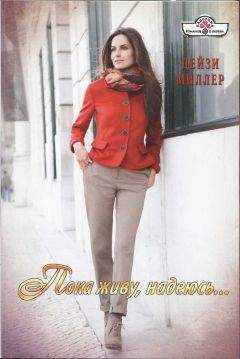Ричард Овери - Сталин и Гитлер
51. Scholder, Requiem for Hitler, pp. 41–2.
52. Douglas, God Among the Germans, pp. 72–4; W. Künneth and H. Schreiner (eds) Die Nation vor Gott (Berlin, 1937), pp. 403–22.
53. Kolnai, War Against the West, pp. 233–4; Douglas, God Among the Germans, p. 74.
54. Künneth and Streiner, Nation vor Gott, pp. 444 ff; Kolnai, War Against the West, p. 283; Douglas, God Among the Germans, p. 58.
55. K. Scholder ‘Die evangelische Kirche in der Sicht der nationalsozialistischen Führung’, Vierteljahrshefte für Zeitgeschichte, 16
(1968), p. 18–19; Douglas, God Among the Germans, pp. 87–91; on Hauer see Kolnai, War Against the West, p. 283.
56. H. Trevor-Roper (ed.) Hitler’s Table Talk 1941–1944 (London, 1984), p. 191, 8–9 January 1942.
57. Trevor-Roper, Hitler’s Table Talk, p. 59, 14 October 1941; p. 125, 11 November 1941.
58. Trevor-Roper, Hitler’s Table Talk, p. 314, 8 February 1942: ‘The evil that’s gnawing our vitals is our priests, of both creeds.’
59. Douglas, God Among the Germans, pp. 2–3; Trevor-Roper, Hitler’s Table Talk, pp. 60–61, 14 October 1941; on Hitler’s religiosity see too H. Buchheim Glaubenskrise im Dritten Reich: Drei Kapitel nationalsozialistischer Religionspolitik (Stuttgart, 1953), pp. 9–16.
60. Douglas, God Among the Germans, pp. 14–17; Trevor-Roper, Hitler’s Table Talk, p. 59; D. Gasman The Scientifi c Origins of National Socialism (London, 1971), pp. 162–9.
61. Roberts, House that Hitler Built, p. 270; on Rosenberg see Douglas, God Among the Germans, pp. 30 ff.
62. M. Burleigh The Third Reich: a New History (London, 2000), p. 253; Hitler, Mein Kampf, pp. 419–20.
63. Douglas, God Among the Germans, pp. 212–13, 217; V. Barnett For the Soul ofthe People: ProtestantProtest againstHitler(Oxford, 1992), pp. 32–4.
64. Scholder, Requiem for Hitler, pp. 101–2; Barnett, Soul of the People, pp. 34–5.
65. Scholder, Requiem for Hitler, pp. 77–9, 90–92, 103.
66. Scholder, Requiem for Hitler, p. 93.
67. Text in P. Matheson (ed.) The Third Reich and the Christian Churches (Edinburgh, 1981), pp. 39–40, speech by Dr Krause, 13 November 1933; Douglas, God Among the Germans, pp. 81–4.
68. Trevor-Roper, Hitler’s Table Talk, p. 7, 11–12 July 1941; on Kerrl see Scholder, ‘Die evangelische Kirche’, pp. 26–8.
69. Douglas, God Among the Germans, p. 26.
70. Buchheim, Glaubenskrise im Dritten Reich, p. 16.
71. Bendiscioli, New Racial Paganism, pp. 3, 32.
72. Douglas, God Among the Germans, p. 21.
73. Scholder, Requiem for Hitler, pp. 110–11.
74. Bendiscioli, New Racial Paganism, pp. 67–85; Scholder, Requiem for Hitler, p. 112; Matheson, Third Reich and the Christian Churches, pp. 67–71, ‘With Burning Concern’, 14 March 1937. There was no room, the encyclical ran, ‘for an ersatz or substitute religion based on arbitrary revelations, which some contemporary advocates wish to derive from the so-called myth of blood and race’.
75. J. Conway The Nazi Persecution of the Churches (London, 1968), pp. 298–9. The fi gure is an estimate only. The exact number is not known.
76. Scholder, ‘Die evangelische Kirche’, pp. 23–4.
77. Barnett, Soul of the People, pp. 43–4.
78. Scholder, Requiem for Hitler, pp. 163–6.
79. Barnett, Soul of the People, pp. 87, 93.
80. F. Reck-Malleczewen Diary of a Man in Despair (London, 1995), p. 22.
81. Trevor-Roper, Hitler’s Table Talk, p. 6, 11–12 July 1941; p. 343, 27 February 1942.
82. S. A. Golunskii and M. S. Strogovich ‘The Theory of the State and the Law’, in J. Hazard (ed.) Soviet Legal Philosophy (Cambridge, Mass., 1951), pp. 366–77; D. Hoffmann Stalinist Values: the Cultural Norms of Soviet Modernity 1917–1941 (Ithaca, NY, 2003), pp. 58–9.
83. Guins, Soviet Law and Soviet Society, p. 27.
84. M. Stolleis Public Law in Germany 1880–1914 (Oxford, 2001), pp. 422–3, 430–31; I. Müller Hitler’s Justice: The Courts of the Third Reich (London, 1991), p. 71.
85. Fraenkel, Dual State, p. 109. See too J. W. Bendersky Carl Schmitt: Theorist for the Reich (Princeton, NJ, 1983), pp. 35, 87;
B. Rüthers Carl Schmitt in Dritten Reich. Wissenschaft als Zeitgeist-Verstärkung (Munich, 1989), pp. 41–4.
86. J. W. Jones The Nazi Concept of Law (Oxford, 1939), p. 19.
87. R. Conquest (ed.) Justice and the Legal System in the USSR (London, 1968), p. 13; J. Hazard, I. Shapiro and P. B. Maggs (eds) The Soviet Legal System (New York, 1969), pp. 5–6; P. Beirne and R. Sharlet ‘Toward a General Theory of Law and Marxism: E. B. Pashukanis’, in P. Beirne (ed.) Revolution in Law: Contributions to the Development of Soviet Legal Theory, 1917–1938 (New York, 1990), pp. 23–4.
88. Conquest, Justice and the Legal System, p. 13; R. Sharlet, P. B. Maggs and P. Beirne ‘P. I. Stuchka and Soviet Law’, in Beirne, Revolution in Law, pp. 49–50. See too J. Burbank ‘Lenin and the Law in Revolutionary Russia’, Slavic Review, 54 (1995), pp. 23–44.
89. Beirne and Sharlet, ‘Toward a General Theory’, p. 36.
90. P. H. Solomon Soviet Criminal Justice Under Stalin (Cambridge, 1996), pp. 20–24, 34–8. By 1928 100 per cent of procurators were party members, and 85 per cent of judges in people’s courts.
91. Hazard et aL, Soviet Legal System, p. 6.
92. D. Pfaff Die Entwicklung der sowjetischen Rechtslehre (Cologne, 1968), pp. 115–21; Beirne and Sharlet, Toward a General Theory’, pp. 34, 39.
93. Guins, Soviet Law and Soviet Society, p. 31.
94. R. Sharlet and P. Beirne ‘In Search of Vyshinsky: the Paradox of Law and Terror’, in Beirne, Revolution in Law, pp. 150–51; Guins, Soviet Law and Soviet Society, pp. 30–31.
95. Sharlet and Beirne, ‘In Search of Vyshinsky’, pp. 138–40.
96. Pfaff, sowjetischen Rechtslehre, p. 115.
97. Pfaff, sowjetischen Rechtslehre, p. 118; see too I. P. Trainin The Relationship between State and Law’, 1945 in Hazard, Soviet Legal Philosophy, pp. 444–5, 446–8.
98. Z. L. Zile (ed.) Ideas and Forces in Soviet Legal History: a Reader on the Soviet State and the Law (Oxford, 1992), p. 277; E. Huskey ‘Vyshinsky, Krylenko, and Soviet Penal Policies in the 1930s’, in Beirne, Revolution in Law, pp. 184–6; P. H. Solomon The Bureaucratization of Criminal Justice under Stalin’, in P. H. Solomon (ed.) Reforming Justice in Russia, 1864–1996 (New York, 1997), pp. 229–32.
99. Bender sky, Carl Schmitt, p. 35.
100. Koenen Der Fall Carl Schmitt, p. 609; H. Müller-Dietz Recht im Nationalsozialismus (Baden-Baden, 2000), p. 5; G. Yieberg Justiz in nationalsozialistischen Deutschland (Bundesministerium der Justiz, Cologne, 1984), pp. 28–9.
101. Rüthers, Carl Schmitt im Dritten Reich, p. 60.
102. Müller, Hitlers Justice, p. 76.
103. Roberts, House that Hitler Built, p. 285; Müller, Hitler’s Justice, p. 72; D. Majer Grundlagen des nationalsozialistischen Rechtssystems (Stuttgart, 1987), p. 104; Koenen, Der Fall Carl Schmitt, p. 608.
104. On Schmitt see Bendersky, Carl Schmitt, pp. 38–9, 87–8; R. Cristi Carl Schmitt and authoritarian liberalism (Cardiff, 1998), pp. 5–15. Fora general biography D. Blasius Carl Schmitt: Freussischer Staatsrat im Hitlers Reich (Göttingen, 2001).
105. Rüthers, Carl Schmitt im Dritten Reich, p. 53.
106. Koenen, Der Fall Carl Schmitt, p. 608; Müller, Hitler’s Justice, p. 71.
107. Rüthers, Carl Schmitt im Dritten Reich, pp. 59–66; Cristi, Carl Schmitt, pp. 12–15.
108. Rüthers, Carl Schmitt im Dritten Reich, pp. 53–5; Koenen, Der Fall Carl Schmitt, p. 601.
109. E. Rabofsky and G. Oberkofl er Verborgene Wurzeln der NS-Justiz: Strafrechtliche Rüstung für zwei Weltkriegen (Vienna,
1985), p. 97.
110. Müller, Hitler’s Justice, pp. 68–9; Rabofsky and Oberkofl er, Verborgene Wurzeln, pp. 83–4.
111. Müller, Hitler’s Justice, pp. 60–65.
112. Majer, Grundlagen des nationalsozialistischen Rechtssystems, p. 103.
113. Majer, Grundlagen des nationalsozialistischen Rechtssystems, pp. 101–2; Fraenkel, Dual State, pp. 40, 107–12.
114. Majer, Grundlagen des nationalsozialistischen Rechtssystems, p. 103.
115. Roberts, House that Hitler Built, p. 286.
116. Koenen, Der Fall Carl Schmitt, p. 612. The attribution was made by Göring in July 1934.
117. Hazard, Soviet Legal Philosophy, p. 370.
118. Fieberg, Justiz im ns Deutschland, p. 28.
119. Conquest, Justice and the Legal System, p. 17.
120. Majer, Grundlagen des nationalsozialistischen Rechtssystems, p. 104.
121. Rabofsky and Oberkofl er, Verborgene Wurzeln, pp. 96–7; Müller, Hitler’s Justice, pp. 76–7.
122. Zile, Ideas and Forces, pp. 265–6, decree ‘On Protecting and Strengthening Public (Socialist) Property’, 7 August 1932.
123. Zile, Ideas and Forces, pp. 297–8, decree ‘On Supplementing the Statute on Crimes Against the State… with Articles Covering Treason’.
124. Hazard et al., Soviet Legal System, pp. 5–6; E. Ginzburg Into the Whirlwind (London, 1967), p. 131.
125. Rabofsky and Oberkofl er, Verborgene Wurzeln, pp. 85–6; Müller, Hitler’s Justice, p. 74.
126. Pfaff, sowjetischen Rechtslehre, p. 117.
127. Royal Institute of International Affairs Nationalism (London, 1939), p. 72.
128. Wetter, Dialectical Materialism, p. 176.
129. Guins, Soviet Law and Soviet Society, p. 32.
130. Scholder, Requiem for Hitler, pp. 47–8.
131. Kolnai, War Against the West, pp. 55–6.
132. Bendersky, Carl Schmitt, pp. 38–9; Müller, Hitler’s Justice, p. 72.
133. Kolnai, War Against the West, p. 289.
134. G. Neesse Die Nationalsozialistische Deutsche Arbeiterpartei (Stuttgart, 1935), p. 10.
135. Majer, Grundlagen des nationalsozialistischen Rechtssystems, p. 103.
136. Wetter, Dialectical Materialism, p. 268.
137. Douglas, God among the Germans, p. 25.
138. V. Kravchenko I Chose Freedom: The Personal and Political Life of a Soviet Offi cial (London, 1947), p. 275.
139. de George, Soviet Ethics and Morality, p. 83.
140. Guins, Soviet Law and Soviet Society, p. 30.
141. Kolnai, War Against the West, pp. 291, 293–4; on the ideal of hardness see J. Hoberman ‘Primacy of Performance: Superman not Superathlete’, in J. A. Mangan (ed.) Shaping the Superman: Fascist Body as Political Icon – Aryan Fascism (London, 1999), pp. 78–9.
142. Imperial War Museum, London, FO 645, Box 157, testimony of Rudolf Höss taken at Nuremberg, 5 April 1946, p. 11.
143. Trevor-Roper, Hitler’s Table Talk, p. 304; Pfaff, sowjetischen Rechtslehre, p. 111.
Глава 8
1. Uncensored Germany: Letters and News Sent Secretly from Germany to the German Freedom Party (London, 1940), pp. 71–3, letter from a teacher, 14 August 1939.
2. Uncensored Germany, pp. 69–73. See too B. Engelmann In Hitler’s Germany: Everyday Life in the Third Reich (London, 1988), p. 38. Engelmann estimated that between 10 and 18 per cent of his classmates at school were ‘real Nazis’.




